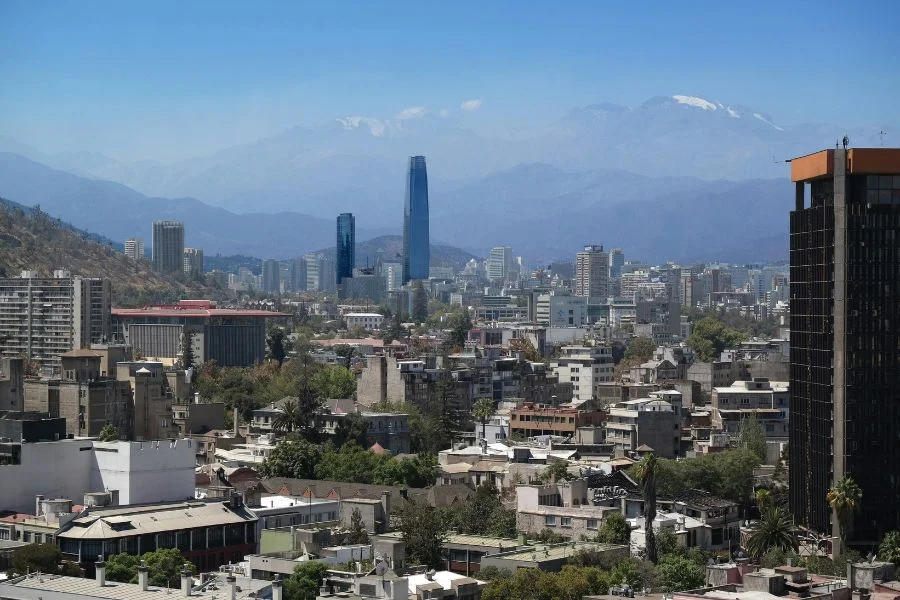Chile might not always make global headlines for migration, but for those seeking long-term stability in South America, it’s a quietly powerful choice. With political stability, a strong economy, and a transparent immigration system, Chile has become one of the region’s most appealing destinations for skilled workers. But here’s the key question every expat eventually asks: Can a work visa lead to permanent residency in Chile? The answer is a confident yes, Chile’s work visa system is one of the most direct pathways to permanent residency in Latin America.
Key Takeaways
Understanding Chile’s Work Visa System
Chile’s immigration framework is built around professional contribution. The government encourages skilled foreigners to fill talent gaps, especially in industries like mining, energy, technology, and education. To live and work legally, foreign professionals typically begin with a Temporary Residence Visa (Visa de Residencia Temporal) based on employment.
Start Your Permanent Residency Check for Chile!
We connect you with trusted immigration experts who simplify the entire process — from paperwork to approval.
This visa is granted to foreigners who have a valid job offer or employment contract with a Chilean employer. The visa can be issued for up to two years and is renewable. Once granted, it allows the holder to live and work freely in Chile, pay taxes, and even bring dependents under family reunification provisions.
Other routes, such as the Visa for Professionals and Technicians, the Investor Visa, or the Mercosur Visa (for citizens of member countries), can also lead to permanent residency. However, the standard employment-based route remains the most popular and consistent.
Also Read: How Will Germany’s End of Fast-Track Citizenship Affect You in 2025?
Who Can Apply for a Chilean Work Visa?
To qualify for a Chilean work visa, applicants must have a formal job offer or a signed employment contract that complies with local labor laws. The contract must be written in Spanish and legalized by the Chilean consulate if signed abroad. It should clearly outline the position, salary, working hours, and termination terms.
Applicants also need to provide:
- A valid passport with at least one year of validity.
- Proof of education or professional qualification.
- A recent police clearance certificate.
- A medical certificate confirming good health.
Also Read: What Documents Do You Now Need for a Portugal Residence Permit?
Once the application is submitted to the Chilean consulate or immigration department, the visa typically takes one to three months to process. Upon approval, the holder can enter Chile and begin working legally.
From Work Visa to Permanent Residency: The Pathway
Chile offers a remarkably straightforward route from temporary residence to permanent status. If you have held a valid Temporary Residence Visa for at least two consecutive years, you can apply for Permanent Residency (Permanencia Definitiva).
The key requirement is that you must have lived continuously in Chile during that time, with no absences exceeding 180 days per year. This demonstrates your commitment to Chilean life and society. Applicants who entered Chile under a work-based visa are among those most commonly approved, as they contribute directly to the national economy.
When you apply for permanent residency, immigration authorities will evaluate your employment record, tax payments, and compliance with local laws. In other words, Chile values both your professional stability and your social integration.
Also Read: Can You Work in Bermuda Without a Permit Under the New Rules?
The Application Process
The application for permanent residency is done through Chile’s Servicio Nacional de Migraciones (National Migration Service). The process has become fully digital in recent years, making it more efficient than before.
Applicants must submit:
- A valid Temporary Resident Card.
- A recent passport copy.
- A certificate of employment and proof of income or tax returns.
- Police clearance (if applicable).
- Proof of address in Chile.
Processing can take between six months and a year, depending on the workload of the migration office. During this period, you must maintain your legal status, so it’s wise to apply before your temporary visa expires.
Once approved, you receive your Permanent Resident Card, which allows indefinite stay and unrestricted employment in Chile.
Also Read: Could New Zealand’s Summer Visitor Visa Be Your Ticket to a Dream Vacation?
Typical Timelines for Permanent Residency
While two years is the official minimum, the actual timeline can vary slightly based on the applicant’s work record and visa category. Most professionals become eligible in their third year of residence, after completing two full years under a valid work visa.

Permanent residency is usually granted for an indefinite period, but the resident must remain in Chile or return within one year of leaving the country. Absence for longer than 12 months without authorization can result in the loss of permanent resident status.
Challenges and Common Mistakes
The Chilean immigration process is relatively clear-cut, but it’s not without pitfalls. The most common mistake applicants make is failing to maintain continuous residence. Long trips abroad, especially for more than six months, can jeopardize your eligibility.
Another frequent issue is incomplete documentation, particularly outdated police certificates or missing employment records. Chilean authorities are strict about verifying income and tax compliance, so applicants who have not filed local taxes or maintained formal employment may face delays or rejection.
Also Read: Can You Earn and Travel Across Europe with a Seasonal Work Visa?
Language barriers can also confuse. All documents submitted to Chilean authorities must be in Spanish or accompanied by certified translations. Overlooking this detail is an easy way to stall your application unnecessarily.
Benefits of Permanent Residency in Chile
Achieving permanent residency in Chile offers stability and flexibility rarely found in other South American systems. As a permanent resident, you can:
- Work for any employer without sponsorship.
- Start your own business or become self-employed.
- Access social benefits and local banking services.
- Apply for long-term loans and property ownership.
- Bring family members under dependent status with ease.
Most importantly, after five years of permanent residency, you become eligible to apply for Chilean citizenship, provided you have demonstrated good conduct and integration. Chilean citizenship grants visa-free or visa-on-arrival access to over 170 countries, including most of Europe.
Is the Work Visa Pathway Worth It?
For foreign professionals seeking both career growth and long-term stability in Latin America, Chile’s work visa route to permanent residency is among the most practical and transparent options available. The two-year transition period is relatively short, the process is digital and structured, and the economic, personal, and social effects are long-lasting.
In short, Chile rewards those who contribute meaningfully and stay consistent. A work visa is not merely a temporary opportunity here; it’s the foundation of a permanent future in one of South America’s most developed and livable nations.
Reference: https://serviciomigraciones.cl/en/residencia-definitiva-permit/





